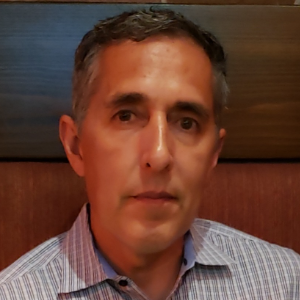Title : The effect of physical exercise on cognitive function in knowledge workers
Abstract:
OwnLife is a leadership development business that combines human analytics with executive coaching to help individuals optimize how they live and maximize their cognitive performance. We hypothesized that physical exercise which materially elevates the heart rate is associated with improved cognitive function in the subsequent 0-8 hours. Male and female adults (18-60 years) from various knowledge-worker industries (Financial Services/Information & Technology/Media/Data & Analytics/Healthcare) participated (total sample size=157). Individuals provided self-report data via the 'OwnLife' app. Data were collected 4 times daily at 4-hour intervals for 2 consecutive weeks. At each collection point relative scores of mental clarity MC), focus (MF), stability (MS) and energy (ME) were captured using a visual analogue scale. Individuals wore Fitbit smartwatches to capture weighted medium and high intensity Physical Exercise (PE). Results suggest that PE of >30 minutes is associated with a decreased Relative Risk (RR) of Low Cognitive Function (LCF) across all 4 measures (MC, MF, MS & ME). MC and MF were the most affected and participants who had completed >30 minutes PE had a RR of low MC and low MF of 0.6 and 0.59 respectively in the period 0-4 hours afterwards (P<0.001 for both). The results also suggest that (1) the RR of LCF in the subsequent 0-4 hours decreases steadily for increased levels of PE up to PE of 30 minutes for all 4 measures, (2) that for ME, the RR of low ME 0-4 hours after exercise plateaus after 30 minutes and then increases, but the RR of low MC and MF continue to decline up to 90 minutes as the level of PE increases (RRs when PE > 90 minutes are 0.39/0.37 with P=0.029/0.021 respectively), and (3) PE of >60 minutes also significantly reduces the RR of LCF in the period 4-8 hours after exercise for all 4 measures, most significantly on MC with a RR of low MC of 0.37 (P<0.001). Implications are that actively managing PE is a valuable consideration in helping knowledge workers optimize their cognitive function at work. Further investigation is required to control for factors such as age, work hour and the time of exercise, and understand how hybrid working, a once in a generation disruption, is impacting other aspects of our ability to create well-structured, optimal routines. We are releasing data on those important variables in the near future.
Audience Take Away Notes:
- Measuring cognitive function using a time-series of self-report data offers a practical alternative to before & after cognitive assessments and could help improve efficiency in collecting larger scale data
- The two-sided visual analogue scale provides extra information to help classify positive or negative symptoms
- The design also allows for assessing effectiveness of multiple exposure levels simultaneously




